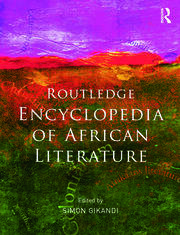ABSTRACT
The years 1934-8 were a formative period for Dadié. During this time he kept a personal journal that contains many of the themes that were to dominate his later works. It was also during this period that he started writing plays. His unpublished play “Les Villes” (Cities), staged by students at Bingerville in 1934, was the first written play in Francophone sub-Saharan Africa. His second play, Assémien Déhylé, roi du Sanwi (Assemien Dehyle, King of Sanwi), was performed at the Ecole William Ponty, one of the elite centers of education (see education and schools) in Senegal, in 1936 and at the Paris Exhibition of 1937. It was then published in a special issue of Education Africaine. In this play, based on a Baoule/Agni legend of beginnings dating back to the end of the eighteenth century, Dadié sought to provide a positive portrayal of African history to counter its distortions by colonial institutions, and to appeal to the Ivorians’ sense of patriotism. To accompany the publication of Assémien Déhylé, Dadié wrote the article “Mon pays et son théâtre” (My Country and Its Theater),
in which he highlighted differences between French and African theater, arguing that because storytelling in Africa was based on oral performance it was inherently theatrical in nature (see oral literature and performance). With these two pieces Dadié became the first African writer to propose a reformulation of the concept of theater in Francophone Africa. During the World War II years, Dadié, who was still based in Senegal, published several pieces in Dakar-Jeunes (Dakar-Youth) and, more importantly, he participated (with Alioune Diop, Guy Tyrolien, and Paul Niger) in the founding of Présence Africaine. It was during this period that he discovered, through a reading of a poem by Senegalese Issa Diop, a poetic form that would satisfy his search for a more supple vehicle for representing African cultural experiences.


